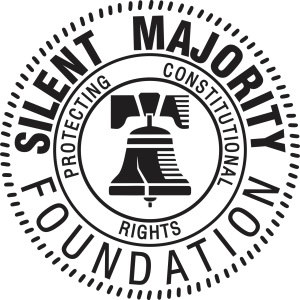
The paradigm has shifted from the Court protecting Washington citizens from over-taxation to the Court characterizing state action in such a way as to find taxation permissive under the Constitution
Austin Hatcher
Silent Majority Foundation
The Washington Supreme Court decision in Quinn v. State of Washington declaring that a capital gains tax does not violate the Washington Constitution is another affront to our rights. The Court’s basis for overturning nearly 100 years of law: “[t]he capital gains tax is appropriately characterized as an excise because it is levied on the sale or exchange of capital assets, not on capital assets or gains themselves.” The Court also held that “the capital gains tax is consistent with our state constitution’s privileges and immunities clause and the federal dormant commerce clause.”

In reviewing the history of taxation, the Court held that “In 1891, 95 percent of state and local tax revenues came from property taxes. During this early period, Washington’s economy was driven by farming, logging, mining, fishing, and like industries, a reflection of the state’s abundance of land and natural resources. Property taxes proved a fairly equitable and effective way to fund the government because ‘in those days the value of tangible property was great and the cost of government little.’” These resources remain abundant throughout the State; obviously, several of our Supreme Court justices have forgotten that fact.
Washington’s 1889 constitution did not limit property tax rates and it contained a strict uniformity clause requiring that property taxes be uniform on all forms of property. Hugh Spitzer, A Washington State Income Tax – Again? 16 Seattle U. L. Rev. 515, 522 (1993). Tax reformers sought to liberalize constitutional constraints on taxation and to introduce an income tax. Id. at 522-24. By the end of the 1930s, the voters, legislature, and judiciary had carved the basic state tax structure that remains today. See Spitzer, supra, at 538.
Aside from departing from the historical wisdom of Washington judges, and its People who have consistently rejected such tax measures, the purpose of the bill is an affront to Washingtonians as the first $500 million collected from the tax each year will be deposited into the education legacy trust account, which supports K-12 education, expands access to higher education, and provides funding for early learning and child care programs. See e.g., Income Tax Ballot Measures (11 separate initiatives, all defeated except the first, brought in 1932 which the Washington Supreme Court invalidated in Culliton v. Chase, 174 Wash. 363, 289 P.2d 81 (1933)) available at:
Culliton v. Chase
Annual revenue beyond $500 million will be deposited into the common school construction account, which funds the construction of facilities for common schools, although it is not specifically earmarked.
At a time when school choice is an important issue, We, The People, should be questioning what is happening with the taxes that are paying for those education services now. Why not a reduction in taxes paying for education? We should be asking why the government isn’t contracting and why has it grown. What’s the basis for a need for so much of the people’s resources? At a time when more students than ever are being homeschooled and performance metrics are falling for public school students, why is the cost of government growing? Where is it going?
However the new tax is characterized and whatever it is intended to benefit, the latest of new taxes on the People is just another way working families are taxed to death by the Washington legislature.
The truly worrisome result of the Supreme Court’s decision is that the paradigm has shifted from the Court protecting Washington citizens from over-taxation to the Court characterizing state action in such a way as to find taxation permissive under the Constitution.
The Silent Majority Foundation’s vision is “here to protect our God given constitutional rights. Our goal is to ensure Equal Protection under the laws of the United States of America and each State. We aim to restore the voices of you, the Silent Majority.’’
Also read:
- Opinion: OIC tells consumers not to pay for ‘insurance’ you won’t likely benefit from: Does that include WA Cares?Elizabeth New (Hovde) of the Washington Policy Center believes you should consider yourself warned by the Office of the Insurance Commissioner about WA Cares and its maybe-only benefit.
- Opinion: Same road, different speed limit?Target Zero Manager Doug Dahl addresses a question about speed limit signs going into and leaving town.
- Opinion: Hiding the growing cost of the Interstate Bridge replacementJoe Cortright of the City Observatory addresses the rising cost of the Interstate 5 Bridge replacement project.
- Letter: ‘This election I am NOT voting for Greg Cheney’Clark County resident Wynn Grcich shares her thoughts on Rep. Greg Cheney and the issue of fluoridation in area drinking water.
- POLL: Should biological males who identify as females be allowed to compete in athletic events against biological females?Should biological males who identify as females be allowed to compete in athletic events against biological females?










